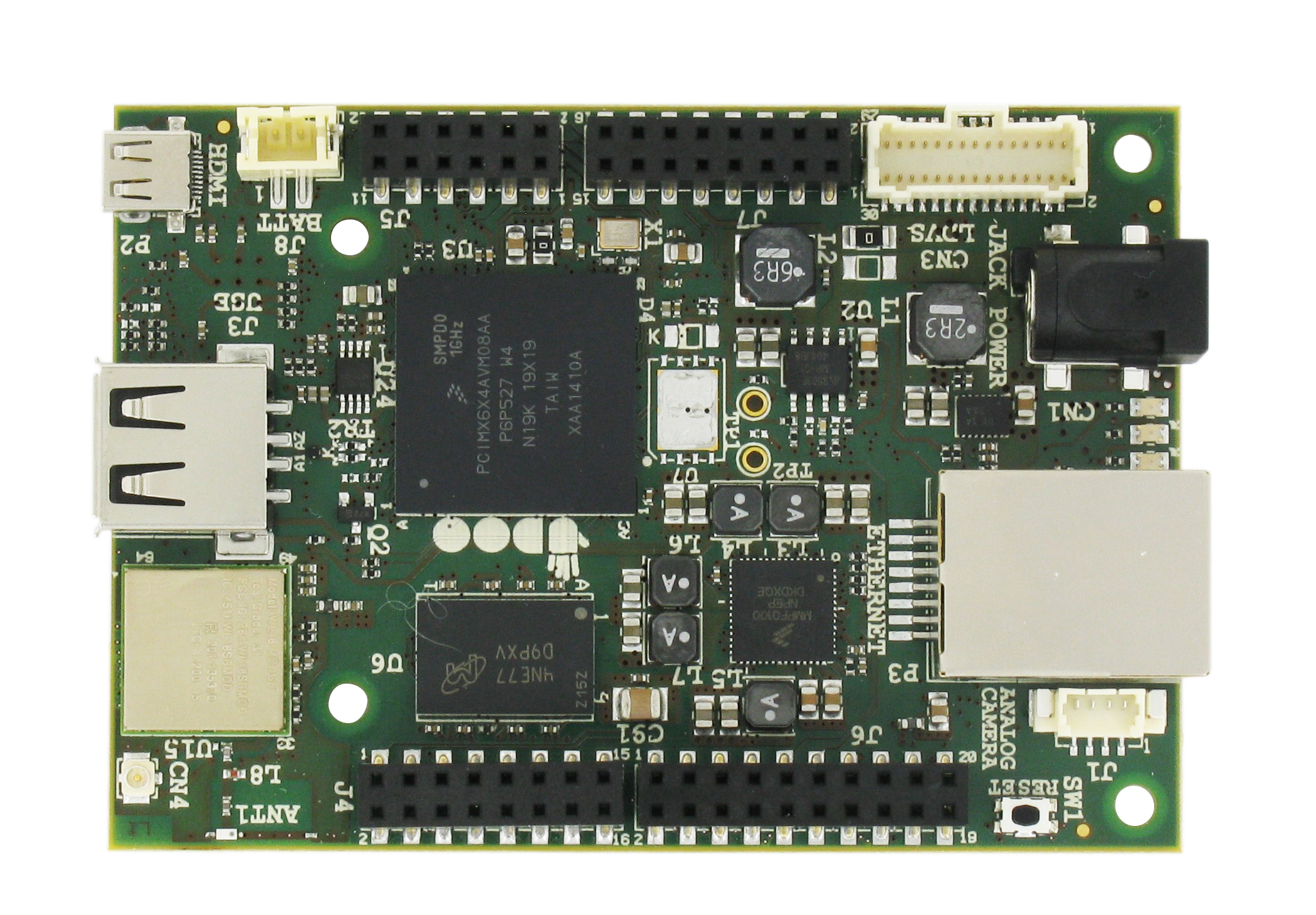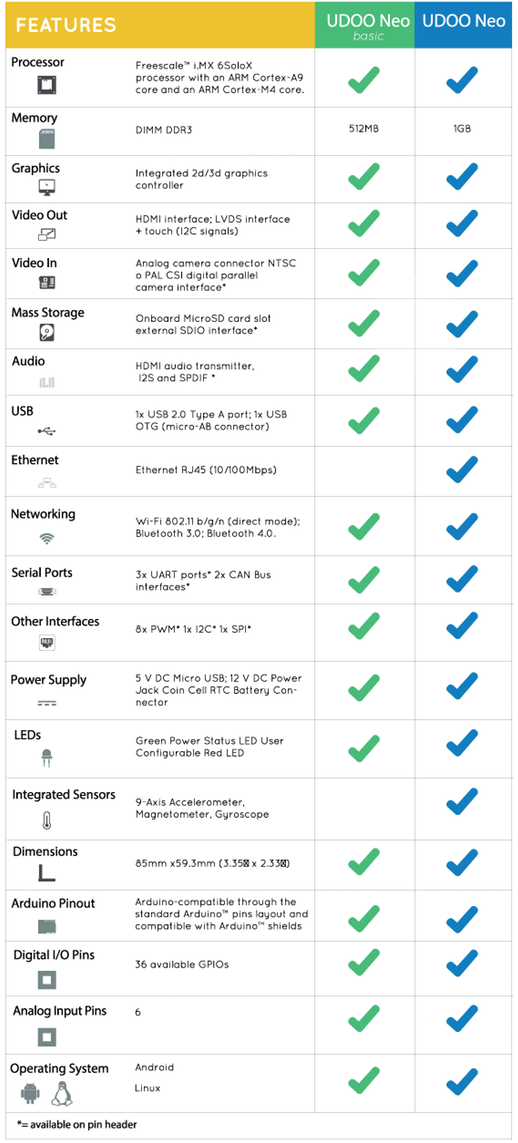UDOO Neo Board Arrives On Kickstarter
The rise in popularity of tiny board computers, most recently the Raspberry Pi 2, continues to increase interest in the DIY area. Two years ago, SECO USA released the UDOO Dual and Quad, another entry into the market. Today, a collaboration between SECO and AidiLab produced the UDOO Neo, the next generation of the small board.
The Udoo Neo comes in two versions, the UDOO Neo Basic and the regular UDOO Neo model, with measurements of 59.3 mm x 85 mm. At its heart is a Freescale i.MX 6SoloX processor which includes both ARM Cortex-A9 and ARM Cortex-M4 cores. For the most part, the two models are almost identical, as depicted in the chart below, but there are a few differences. The Basic version will have 512 MB of RAM, while the other model has 1 GB. The regular version also includes Ethernet (RJ45, 10/100 Mbps) and integrated sensors (9-axis accelerometer, magnetometer, gyroscope).
One of the most impressive features on the UDOO Neo is the ability to run multiple operating systems. You can run the Arduino IDE system on the Cortex-M4 processor and easily switch between Android KitKat 4.4.3 and Linux (by switching the SD Card) on the Cortex-A9. This adds a lot of flexibility for the board, but it also means that it attracts even more developers familiar with any of the three systems. Just like the original UDOO models, the UDOO Neo is an open-source hardware board.
The UDOO Neo is currently on Kickstarter with a $15,000 goal. With 35 days left at press time, the mark was easily passed at $103,097. Interested customers can pledge a minimum of $49 to get the UDOO Basic. At $59, you can get the UDOO Neo.
The small size and open-source hardware opens up possibilities to use the UDOO Neo in a variety of scenarios. The Raspberry Pi 2 is still a popular choice among the DIY community, but what the UDOO Neo offers could bring in new and veteran developers alike.
Follow Rexly Peñaflorida II @Heirdeux. Follow us @tomshardware, on Facebook and on Google+.
Get Tom's Hardware's best news and in-depth reviews, straight to your inbox.
Rexly Peñaflorida is a freelance writer for Tom's Hardware covering topics such as computer hardware, video games, and general technology news.

